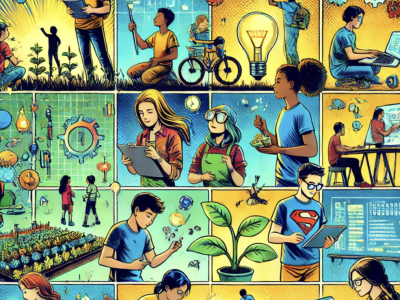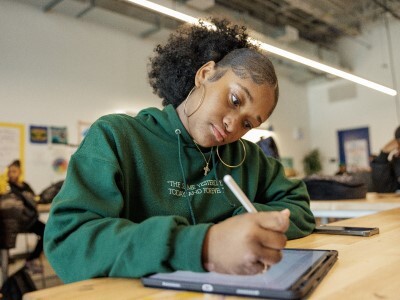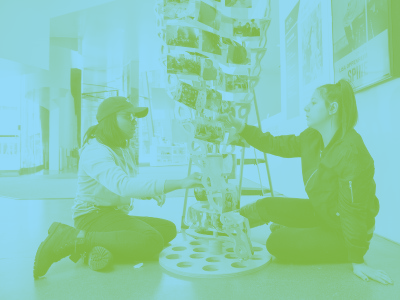Technology Tools
Three NGLC Innovations Show Evidence of Student Success
Topics

Educators often take advantage of educational technologies as they make the shifts in instruction, teacher roles, and learning experiences that next gen learning requires. Technology should not lead the design of learning, but when educators use it to personalize and enrich learning, it has the potential to accelerate mastery of critical content and skills by all students.
Three higher ed institutions attained success in their grant-funded project work, both in terms of scale and positive effects on student success. They continue to thrive.
The Funding Challenge
When NGLC launched in 2010, the first challenge it issued to educators was scaling tech-enabled solutions to address the persistent problem of low college completion rates.
We were looking specifically for innovations in the following areas:
- open core courseware,
- blended learning,
- deeper learning and engagement,
- and learning analytics.
And we were looking specifically for innovations that addressed the most common stumbling blocks for students: developmental math and English, and high-enrollment, low-success introductory ‘gen ed’ courses. See the Higher Ed Tech Innovation section of our Funding Framework to learn more about this first grant challenge.
An Impressive Response
Six hundred innovators responded with proposals. In March 2011, 29 were awarded grants.
This first challenge ended last year, and some of the most successful innovations to emerge from the grant program include exciting outcomes to be shared.
NGLC has published at-a-glance profiles of three of those successful grant recipients:
- California State University Northridge’s Hybrid Lab Courses: a whole course redesign involving blended learning, with a long-term goal of expanding to additional CSU and Los Angeles Community College district campuses in math and other subjects
- Chattanooga State Community College’s U Do the Math: also a whole course redesign involving blended learning in developmental math, with the project goal of implementing the new model in three colleges and disseminate project practices and results to a broader audience through the Education Trust’s Access to Success Network
- University of Michigan Department of Physics E2Coach: a learning analytics-based innovation that adapted an open-source software package to provide personalized student support in large-enrollment STEM courses
Ongoing Success Stories
These three higher ed institutions attained success in their grant-funded project work, both in terms of scale and positive effects on student success. Remarkably, these three innovations continue to thrive.
1. CSU Northridge received additional “follow on funding” from NGLC based on the evidence demonstrating early successes of the hybrid lab course model, which involves five interactive components: Lecture, Supplemental Contact Hour, Homework, Assessment, and Remediation.
2. U Do the Math continues at Chattanooga State as well as at the two partner colleges from its grant project, Jefferson Community and Technical College and University of Hawaii Maui College. Chattanooga State has since partnered with the State of Tennessee to bring its developmental math course to high school students, reaching 150 high schools and 13,000 students next year.
3. E2Coach has expanded beyond the physics department at the University of Michigan to other science departments; the developers are exploring its use in academic advising and the success of E2Coach is spurring support for other learning analytics initiatives at the university.

In five minutes, you can find out all you need to know about each innovation in the three-page profiles:
- Design details of the innovation
- Project activities funded by the grant
- Results to date including evaluation findings and outcomes charts
- Faculty and student participant impressions
- Next steps
- Resources to learn more




